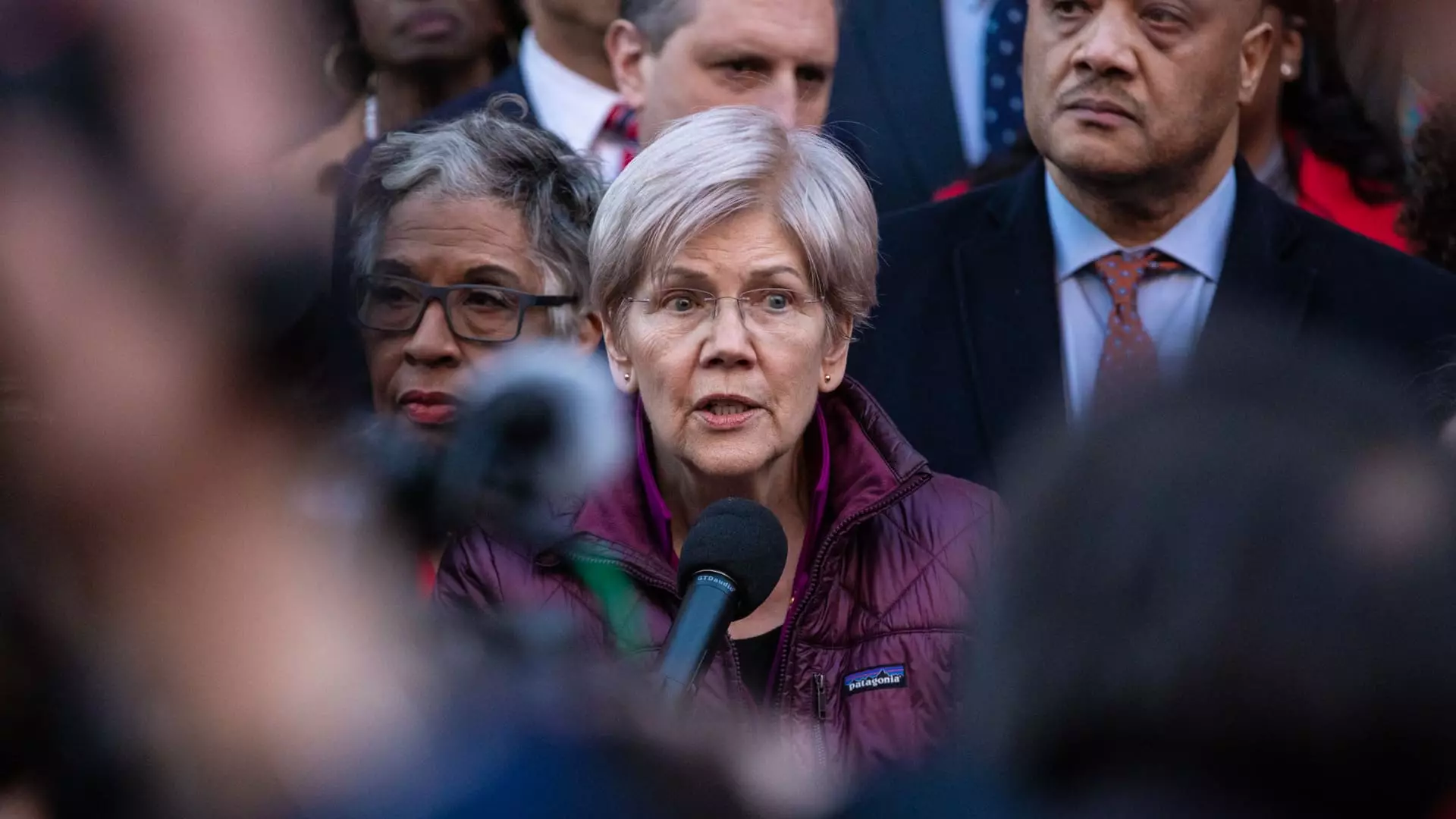Recent developments surrounding the Federal Deposit Insurance Corporation (FDIC) have brought to light significant concerns regarding the stability of the U.S. banking system, particularly in light of the controversial staff reductions instigated under the Trump administration. Under the guidance of the Department of Government Efficiency, a strategic approach aimed at downsizing federal agencies has led to the elimination of approximately 1,000 FDIC positions this year alone. These cuts, comprising voluntary buyouts as well as the removal of probationary employees, were aimed at streamlining operations but have raised alarm bells regarding the agency’s operational capacity and bank oversight abilities.
Senator Elizabeth Warren has become a vocal critic of these moves, asserting that the reduced workforce poses a tangible threat to the integrity of the nation’s financial safety net. In a letter addressed to FDIC Inspector General Jennifer Fain, which was disseminated to the media, Warren and several ally Senators—Raphael Warnock, Chris Van Hollen, and Lisa Blunt Rochester—expressed their concerns about the direct correlation between staffing levels and the FDIC’s effectiveness.
The senators pointed out that recent failures in the banking sector, such as the significant collapse of Signature Bank in March 2023, could be directly attributed to deficiencies in staffing. Specifically, the lack of adequate examiners resulted in postponed examinations and lapses in supervisory controls, suggesting that the downsizing of FDIC staff might have severe repercussions for financial oversight.
The crux of the matter lies in the intricate relationship between regulatory oversight and workforce availability. Warren’s insinuation—that fewer examiners inevitably leads to compromised oversight—highlights the real risks presented by the current cuts. The senators articulated a poignant reality: when there are insufficient “cops on the beat,” the very fabric of the banking system’s reliability is placed under immense strain. As underscored by the FDIC’s historical importance in maintaining public confidence in the banking system, any weak links in agency staffing can lead to bigger failures, both in terms of regulatory efficacy and consumer trust.
Moreover, the staffing shortages at the FDIC threaten to undermine the federal deposit insurance safety net—an assurance relied upon by countless Americans. Without adequate oversight, the risk emerges that both banks and consumers may end up with diminished protections, fostering an environment ripe for instability.
A Call for Responsibility and Review
The I.G. Jennifer Fain acknowledged the pressing need to evaluate the consequences of these staffing shortages, reinforcing the sentiment expressed by the concerned senators. Fain’s indication that the “full effect and impact” of these drastic staffing changes remains uncertain suggests that ongoing assessment and adaptation in oversight are crucial to ensuring stability.
It is critical that, moving forward, the FDIC adopts a more proactive approach in its examination protocols. The recent failures underscore the urgency with which such measures are needed, as the agency must grapple with evolving market conditions while ensuring that regulatory mechanisms are robust and effective.
Public Perception and Trust
As consumer sentiment becomes increasingly sensitive to the nation’s banking stability, the government entities responsible for safeguarding these systems must be equipped adequately to address growing concerns. The alarming ramifications of staff reductions create a narrative that could undermine public trust in financial institutions and regulatory bodies, amplifying fears surrounding the safety of deposits.
In sum, the decisions to cut FDIC staffing have ignited a debate about the fundamental obligations of the agency in its role as a regulator and protector of the American banking system. While the intention behind workforce reductions aimed at fiscal restraint may have merit, the prevalent risks to both security and confidence in the banking industry cast a long shadow over these actions. The FDIC’s task of maintaining stability and public trust is now more imperative than ever.

